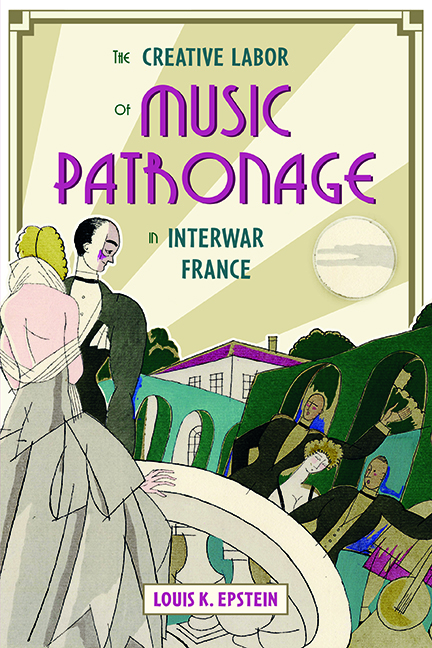Book contents
- Frontmatter
- Dedication
- Contents
- List of Tables
- List of Musical Examples
- Acknowledgments
- Abbreviations
- Introduction: Redefining Patronage
- 1 The Patronage Problem
- 2 Aristocratic Commissions
- 3 Entrepreneurial Patronage and Concert Dance
- 4 The Publisher as Patron
- 5 Jacques Rouché: The State’s Patron
- 6 Nationalizing Music Composition
- 7 Transatlantic Legacies
- Bibliography
- Index
- Music in Society and Culture
2 - Aristocratic Commissions
Published online by Cambridge University Press: 26 May 2022
- Frontmatter
- Dedication
- Contents
- List of Tables
- List of Musical Examples
- Acknowledgments
- Abbreviations
- Introduction: Redefining Patronage
- 1 The Patronage Problem
- 2 Aristocratic Commissions
- 3 Entrepreneurial Patronage and Concert Dance
- 4 The Publisher as Patron
- 5 Jacques Rouché: The State’s Patron
- 6 Nationalizing Music Composition
- 7 Transatlantic Legacies
- Bibliography
- Index
- Music in Society and Culture
Summary
On Tuesday, March 21, 1933, the Orchestre Symphonique de Paris performed an unusual program. Like most Parisian orchestras in the 1930s, the OSP regularly offered audience-pleasing gems from the eighteenth and nineteenth centuries, but this concert exclusively featured music composed within the previous thirty-five years by French composers. The contemporaneity and overwhelming Frenchness of the program meant that the audience heard evidence of several major trends in early twentieth-century French music. They took in the modally inflected harmonies and Symbolist inspiration of Maurice Ravel's and Gabriel Fauré's works from the late 1890s. And they encountered the polytonality and neoclassicism of more recent compositions by Darius Milhaud, Germaine Tailleferre, and Igor Markevitch. In its first Parisian performance, Francis Poulenc's Concerto for Two Pianos shifted from evocations of Balinese gamelan to Parisian fairground tunes to quotations from Mozart, representing tendencies in interwar French music toward exoticism, art of the everyday, and retrospectivism. A regular concertgoer would have been hard pressed to find another public concert so emphatically supportive of recent French music.
The concert's stated theme – “works dedicated to Mme. la Princesse Edmond de Polignac” – made it remarkable in another way. Rarely was a patron so publicly and positively acknowledged by concert organizers. As seen in the previous chapter, critics were more likely to evoke the figure of the patron when they hoped to score rhetorical points against a given piece. And outside of a salon, several works associated with the same patron were almost never performed alongside one another. But de Polignac was not only the dedicatee of the OSP's featured composers. She had also commissioned four of the pieces on the program (those by Tailleferre, Milhaud, Markevitch, and Poulenc), as well as seventeen others between 1916 and 1939. While de Polignac's impact was extraordinary, and while the OSP concert was exceptional in its acknowledgement of de Polignac's largesse, both the patron and the concert nevertheless represent a broader phenomenon: through their commissions, aristocratic patrons collectively exerted enormous influence on the development of interwar French music.
Twenty years before the OSP concert, French patrons did not commission multiple pieces. Even one-off commissions were rare.
- Type
- Chapter
- Information
- The Creative Labor of Music Patronage in Interwar France , pp. 42 - 70Publisher: Boydell & BrewerPrint publication year: 2022



